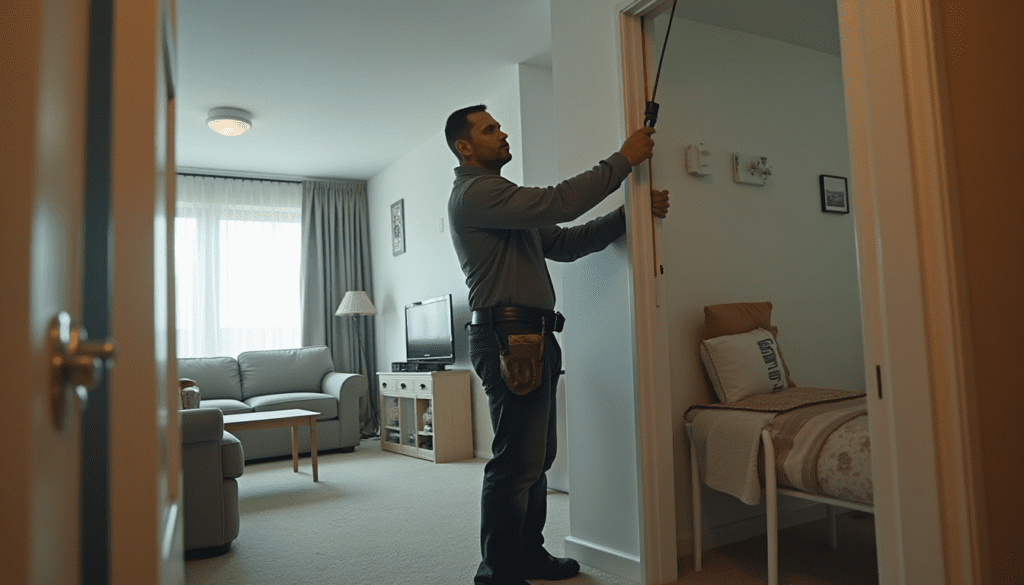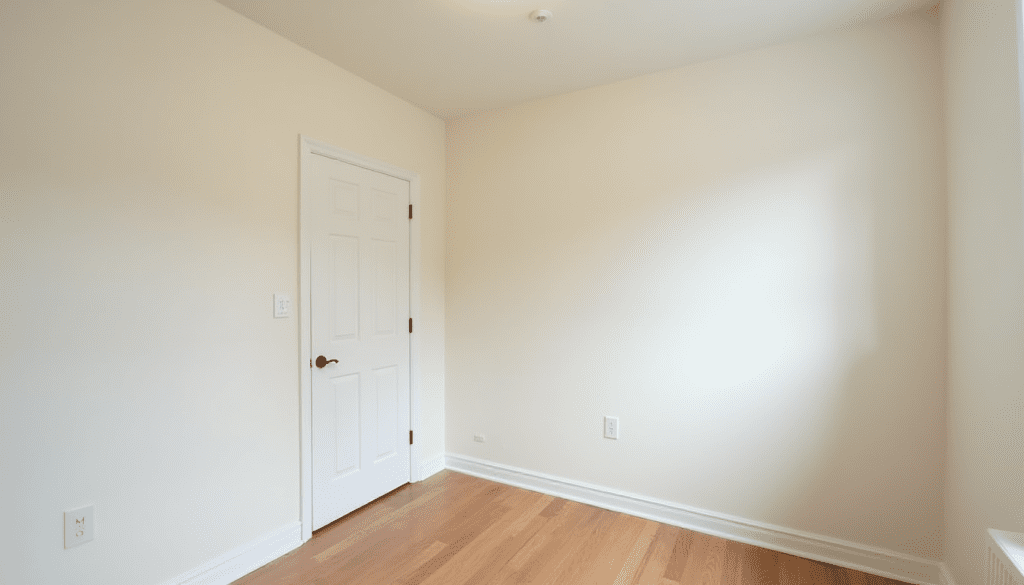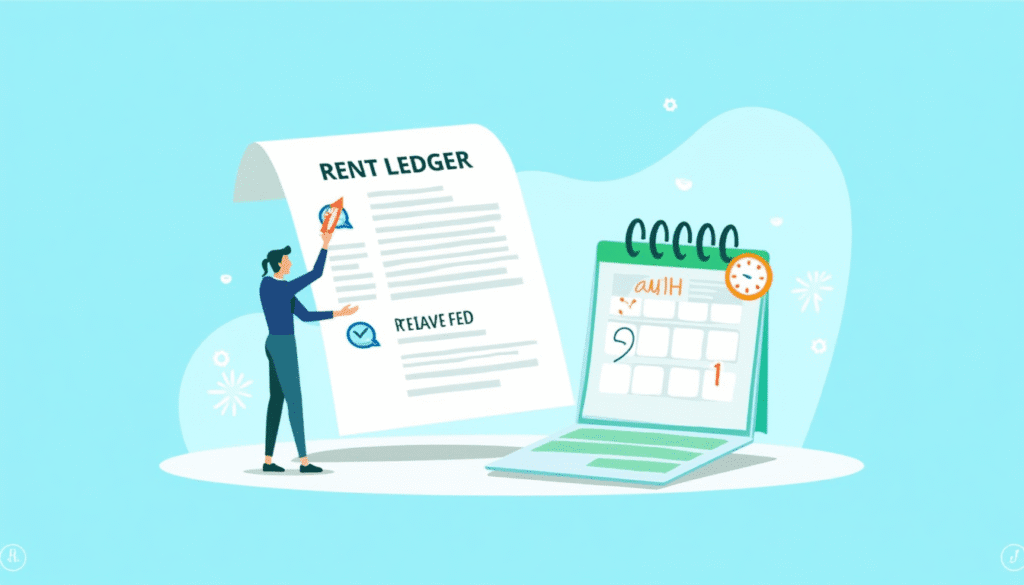If a tenant in Belleville is consistently late, you’re not alone—and you’re not powerless. With a few legal must-knows, some automation, and clear procedures, most late-pay patterns can be fixed without burning the relationship or risking compliance. Below you’ll find a landlord-friendly, New Jersey-specific playbook you can copy into your workflow today.
1) Why Late Rent Keeps Happening in Belleville, NJ
In Essex County suburbs like Belleville, late rent usually traces back to a small set of causes: inconsistent income schedules, flawed lease language (vague grace periods, undefined late-fee rules), clunky payment methods, and “soft” follow-through after the first offense. You also see timing friction—tenants get paid after the 1st while rent is due on the 1st, or they rely on manual checks that stall in the mail. Add in rising costs and you get a pattern: the tenant is not a nonpayer, but a habitual late payer.
Two quick wins usually break the pattern fast:
- Modern payment rails (ACH/autopay + reminders) so the due date doesn’t sneak up. If you don’t want to self-manage this, a manager can run it for you; see our pricing & services and rent collection details.
- Clear, NJ-savvy lease terms (due date, grace language, and reasonable late-fee schedule) so you have predictable enforcement without disputes. New Jersey requires special attention for certain renters regarding grace periods (more below).
Want more local best practices? See our Belleville landlord tips guide for screening, rent-setting, and resident onboarding ideas you can layer in to prevent late payments in the first place.
2) New Jersey Rules at a Glance (Grace Periods, Late Fees, Notices)
Grace periods (who gets them & when they apply)
New Jersey grants a five-business-day grace period for rent due on the first of the month to specific renters—senior citizens and certain recipients of disability or public assistance. Importantly, you cannot count those five business days when assessing a late charge. “Business day” excludes weekends and state/federal holidays. Include this clearly in your lease and your rent-collection calendar.
Late fees (what’s allowed & what courts look for)
There’s no statewide statutory cap on late fees in New Jersey; however, fees should be reasonable and stated in the lease. Many practitioners and tenant-law resources suggest courts tend to accept roughly 4–5% of monthly rent when challenged, but punitive or “stacked” fees risk being struck. Bottom line: write a clear, proportionate fee in your lease and never charge it inside the protected grace period for eligible renters.
Want to sanity-check your numbers? Run the math in our in-house Late Fee Calculator or bookmark the tools hub for quick access during renewals.
Nonpayment vs. habitual lateness (different legal paths)
For pure nonpayment, New Jersey allows you to file a case without serving a Notice to Quit first (you still must follow court procedures). For habitual late payment, the Anti-Eviction Act recognizes removal after you serve a Notice to Cease (NTC) and the tenant continues paying late; you typically follow with a Notice to Quit/Demand for Possession (NTQ) before filing. Handle these steps with precision—the wrong notice or timing can get a case tossed.
3) What Counts as “Habitual Late” in NJ—and Why It Matters
Habitual late payment is an eviction ground under N.J.S.A. 2A:18-61.1(j) once you issue a proper Notice to Cease and the tenant keeps paying late without legal justification. State guidance and case law emphasize: the NTC must clearly demand that the tenant stop paying late, and you need proof that lateness continued afterward. Some practice guides say two post-NTC late payments may suffice; others suggest gathering a bit more proof depending on the facts. Document the late dates, your notices, delivery proof, and any communication logs.
Also note: for nonpayment and for post-judgment timing, New Jersey provides a critical three-business-day cure window after the eviction (“lockout”) via court rules—so your timeline planning should account for potential last-minute cures.
If you’d like a comparable playbook tailored for a neighboring city, you can cross-reference our Garfield, NJ late-rent guide to see how we adapt the same NJ framework to different local conditions.
4) Your Day-By-Day Response Timeline (From Due Date to Resolution)
Day 0–1: Due date hits
Send an automated courtesy reminder on the morning of the due date and another on Day 2. This isn’t a legal notice—it’s a nudge. Keep language neutral and solutions-oriented (“Need a hand setting up ACH?”). If your tenant is a senior or otherwise covered by the five-business-day rule and rent is due on the 1st, your system should avoid generating any fee until that grace fully expires.
Day 2–5: Grace-period tracking (if applicable)
When the 1st lands on a weekday, count five business days for eligible renters before any late fee (and make sure your ledger excludes those days when calculating delinquency). Your ledger should show date rent received, communications sent, and whether a covered grace period applied.
Day 6–7: Written late notice
Once the grace window closes (or immediately for non-covered renters), issue a written late notice that cites the lease clause, states the amount now due (rent + allowable late fee), and offers fast ways to pay (ACH link, portal instructions). Your invoice language should be factual, not punitive. For structure in your workflow, save this as a template inside your portal or property-management software.
Repeat pattern: Escalation for chronic lateness
When lateness repeats without lawful reason, serve a Notice to Cease that plainly tells the tenant to stop paying late and warns of next steps. If late payments continue after the NTC, serve a Notice to Quit/Demand for Possession and then file if needed. Timing and content matter; track each service date and keep copies for court.
Filing & cure after judgment
If it escalates to court in Essex County, remember New Jersey’s post-eviction cure right: tenants can pay all rent due and costs up to three business days after eviction. Landlords must accept that payment (cashier’s check, money order, or cash) and notify the court within two business days. Build this possibility into your expectations so you’re ready either way.
5) Setting Grace Periods & Late Fees That Hold Up in NJ
Write lease language that’s clear—and enforceable
Use plain, specific terms: the due date, when a payment is considered late, which renters have a statutory five-business-day grace period if rent is due on the 1st, the exact late-fee amount or formula, and how/when fees apply. New Jersey’s Truth-in-Renting guidance encourages that fees you intend to charge be clearly stated in the lease; that clarity reduces disputes and helps judges see that you acted predictably.
Choose a fee that’s firm but fair
Since there’s no hard statewide cap, aim for a reasonable figure (many practitioners keep it near 4–5% of monthly rent with a dollar cap). Never “stack” fees (e.g., a daily fee that balloons, or compounding on unpaid late fees) and never include the five-business-day protected window for eligible renters. Keep the fee tied to administrative costs and deter—not punish—late payments. :contentReference[oaicite:11]{index=11}
Automate collection to prevent lateness
Portals with autopay/ACH, due-date reminders, and instant receipts turn chronic late payers into on-time payers. If you prefer to outsource, our team can stand this up for you—see management packages, or talk to us about our rent collection workflow. If you self-manage, pair automation with a soft-hard communication ladder (courtesy reminder → written late notice → NTC/NTQ as needed) and keep records for each step. :contentReference[oaicite:12]{index=12}
Pro tip: before your next renewal, test your fee using the Late Fee Calculator to confirm it’s proportionate for your current rent level—and link from this Belleville article to our Garfield late-rent guide to strengthen your topical cluster.
6) Payment Options That Reduce Lateness (Autopay, ACH, Text-to-Pay)
Most “habitual late payers” aren’t trying to stiff you—they’re battling timing and friction. Your job is to remove obstacles and make on-time payment the default. Start with a tenant portal that supports ACH/autopay, scheduled reminders by email/SMS, and instant receipts. Give tenants a 3-step setup guide at move-in and reinforce it at renewal. If your resident’s pay cycle reliably hits after the 1st, consider aligning the due date at renewal (where lawful) while preserving any statutory five-business-day grace period for eligible renters when rent is due on the first of the month.
- Autopay/ACH: Encourage bank-to-bank payments; they’re predictable and low-friction. Pair with reminders three days before the draft.
- Digital receipts & ledgers: Send a confirmation with balance details and next due date every time funds land.
- Multiple “lawful” acceptance paths: New Jersey requires landlords to accept certified funds or payment via approved assistance or bona fide charities within the post-eviction cure window; bake those into your policy language so staff knows how to handle them. See the NJ Courts landlord-tenant guidance and C.46:8-49.3.
Internal resources that help: run your numbers with our Late Fee Calculator and share our Tools page with residents who ask how late fees are computed. For owners who want a done-for-you system, compare our management packages that include automated rent collection.
7) Communication Scripts for First, Second, and Repeat Offenses
Clear, consistent language prevents debates and keeps you compliant. These scripts use a neutral, solutions-first tone and reference the lease rather than emotions.
First late payment (courtesy nudge)
Subject: Friendly reminder—Rent for [Property Address]
Hi [Tenant Name], we didn’t see your [Month] rent yet. If you’ve already paid, thank you—please disregard this. Otherwise, you can pay instantly via the portal here: [link]. If you’d like autopay/ACH, I can help you set that up so you never miss a due date. If you’re eligible for New Jersey’s five-business-day grace period (seniors or certain benefit recipients), we’ll honor it as required by law. Thanks for taking care of this today.
Second occurrence (written late notice)
Subject: Written Late Notice—Lease Section [#] & Amount Due
Hi [Tenant Name], per Section [#] of your lease, your balance is $[rent] + $[late fee as applicable]. Please submit via the portal by [date]. If you need help setting up ACH/autopay or reminders, reply and I’ll assist. This is a formal late notice and will be kept with your account records.
Habitual lateness (Notice to Cease step)
Subject: Notice to Cease—Habitual Late Rent
This letter is a Notice to Cease pursuant to New Jersey’s Anti-Eviction Act. Our records show repeated late rent payments on [dates]. You must stop paying late. Future late payments may result in a Notice to Quit/Demand for Possession and a court filing. You can prevent further action by (1) enabling autopay and (2) paying on or before the due date each month. For assistance options, contact us immediately.
Note: New Jersey recognizes habitual late payment as a removal ground after a Notice to Cease. Review the state’s bulletin and statute language: DCA Grounds for Eviction and N.J.S.A. 2A:18-61.1(j). When in doubt, consult counsel.
If you’d rather have us handle notices end-to-end (including drafting and service), see our Pricing and contact us from the homepage.
Keyword focus: communication scripts for late rent, Notice to Cease New Jersey, Notice to Quit, habitual late rent NJ, Essex County landlord-tenant.
8) Record-Keeping: Ledgers, Notices, and Evidence That Win in Court
Courts care about documentation. Your file should read like a timeline a judge can follow in 60 seconds. Maintain a monthly rent ledger showing due date, grace status (if applicable), payment date/method, running balance, and late fees. Attach copies of all emails, portal messages, and letters along with proof of service (certificate of mailing, certified mail receipt, process server affidavit). Save your Notice to Cease and subsequent Notice to Quit/Demand for Possession with exact dates and delivery proofs. Reference the state’s official materials for the correct grounds and sequence: DCA Grounds for Eviction and NJ Courts.
Two more pointers:
- No fee inside protected windows: For seniors and certain benefit recipients, do not assess a late fee within the five-business-day grace period when rent is due on the first.
- Post-eviction cure: If a case escalates, tenants can cure up to three business days after an eviction; landlords must accept certified funds or a qualifying third-party payment and notify the court. See NJ Courts and the implementing statutes (46:8-49.3).
Internally, keep a “court-ready” folder per tenant. If you need help building a compliance-grade file, our team can assist. Explore our Essex County inspection checklist (a great quality-control companion) and our other Belleville landlord tips.
9) When (and How) to Offer Payment Plans Without Losing Control
Payment plans can keep a salvageable tenancy on track—but only if they’re structured. Use a one-page Rent Repayment Agreement (addendum) that includes: (1) current balance and reason, (2) weekly or bi-weekly catch-up schedule aligned to paydays, (3) requirement to keep current rent + plan both paid, (4) autopay/ACH enrollment, (5) a hard-stop clause (missed installment = plan void, late fees resume as stated, and owner may proceed with notice consistent with NJ law), and (6) language that the plan does not waive your rights under the lease or statute.
Best practices:
- Uniform criteria: Apply the same plan rules to similarly situated tenants to avoid fair housing problems.
- Short horizon: 4–8 weeks is typical; long plans tend to fail.
- Assistance first: If the resident may qualify for help, point them to New Jersey SRAP (when open) or county resources before you finalize a plan.
- No stacking fees: Keep fees reasonable and consistent with the lease and local rules—New Jersey has no statewide cap, but courts dislike punitive schedules. Spell it out clearly (reinforce in your lease per Truth-in-Renting guidance).
To see how we apply this policy thinking in neighboring markets, compare our Garfield late-rent guide—it’s the same NJ legal backbone adjusted for local context.
10) Rental Assistance & Local Resources Belleville Landlords Should Know
Good landlords know the fastest route to being made whole. In New Jersey, after a judgment or even after an eviction, tenants (or an approved third party) may legally tender payment that cures the case within the statutory window. Two implications for owners: (1) cooperate with legitimate programs/charities and (2) keep a ready script for accepting certified funds and reporting to the court. See NJ Courts—Landlord/Tenant, C.46:8-49.3, and C.2A:42-10.16a.
State & county programs (availability varies):
- State Rental Assistance Program (SRAP)—periodic lottery openings; eligible households receive subsidies paid to landlords.
- Urban League of Essex County—resource hub; periodic rental/utility assistance rounds for eligible residents.
- Catholic Charities of the Archdiocese of Newark—HUD-certified housing counseling and emergency support in Essex County.
- LSNJ—County resource list (Essex section) with local agencies that can help with back rent and utilities.
When assistance is pending, put in writing how you’ll handle partials, deadlines, and verification. New Jersey requires landlord cooperation with qualified rental assistance and bona fide charities in the post-eviction cure window—train your team to process those payments fast and to notify the court within two business days as required.






